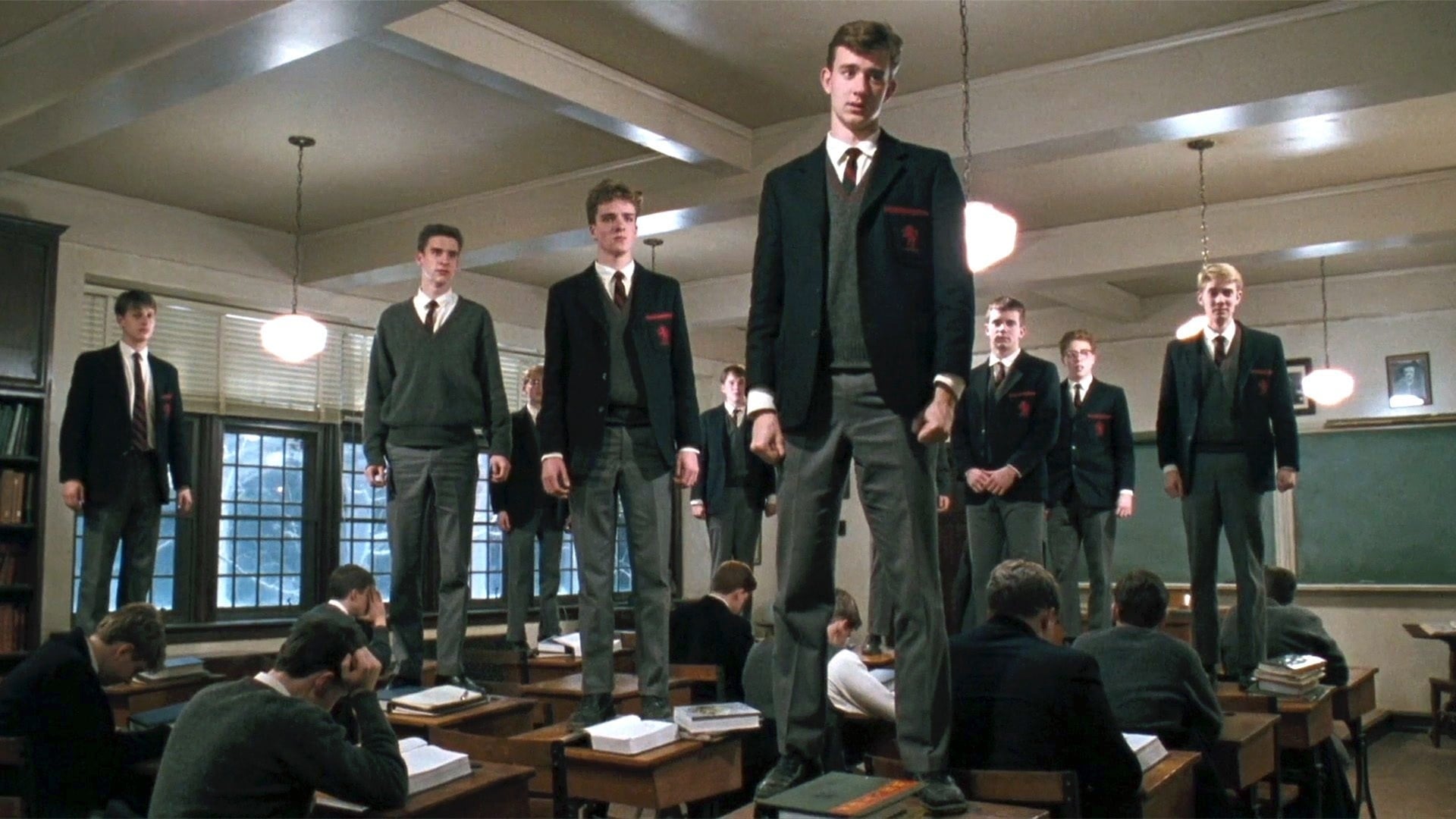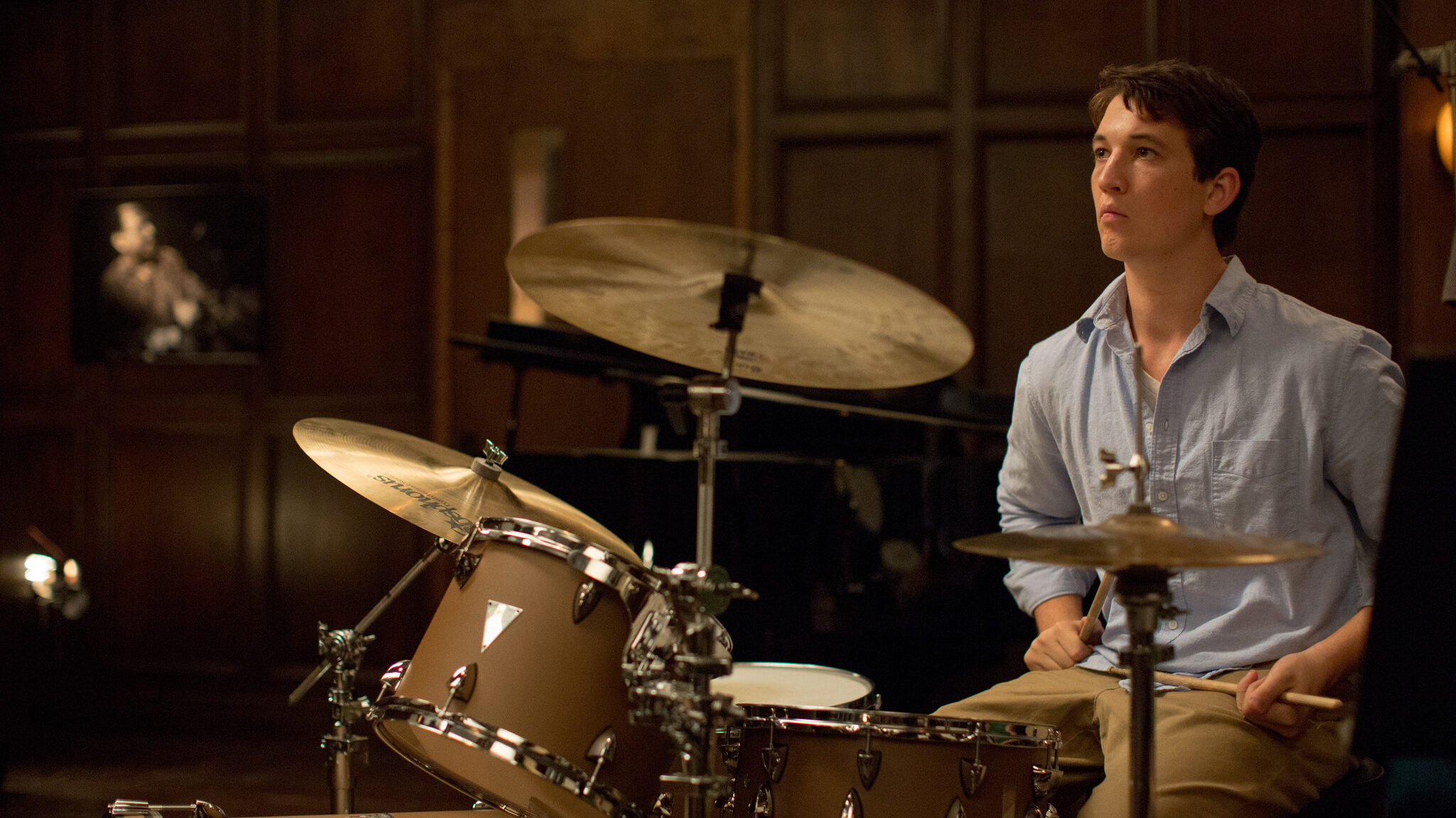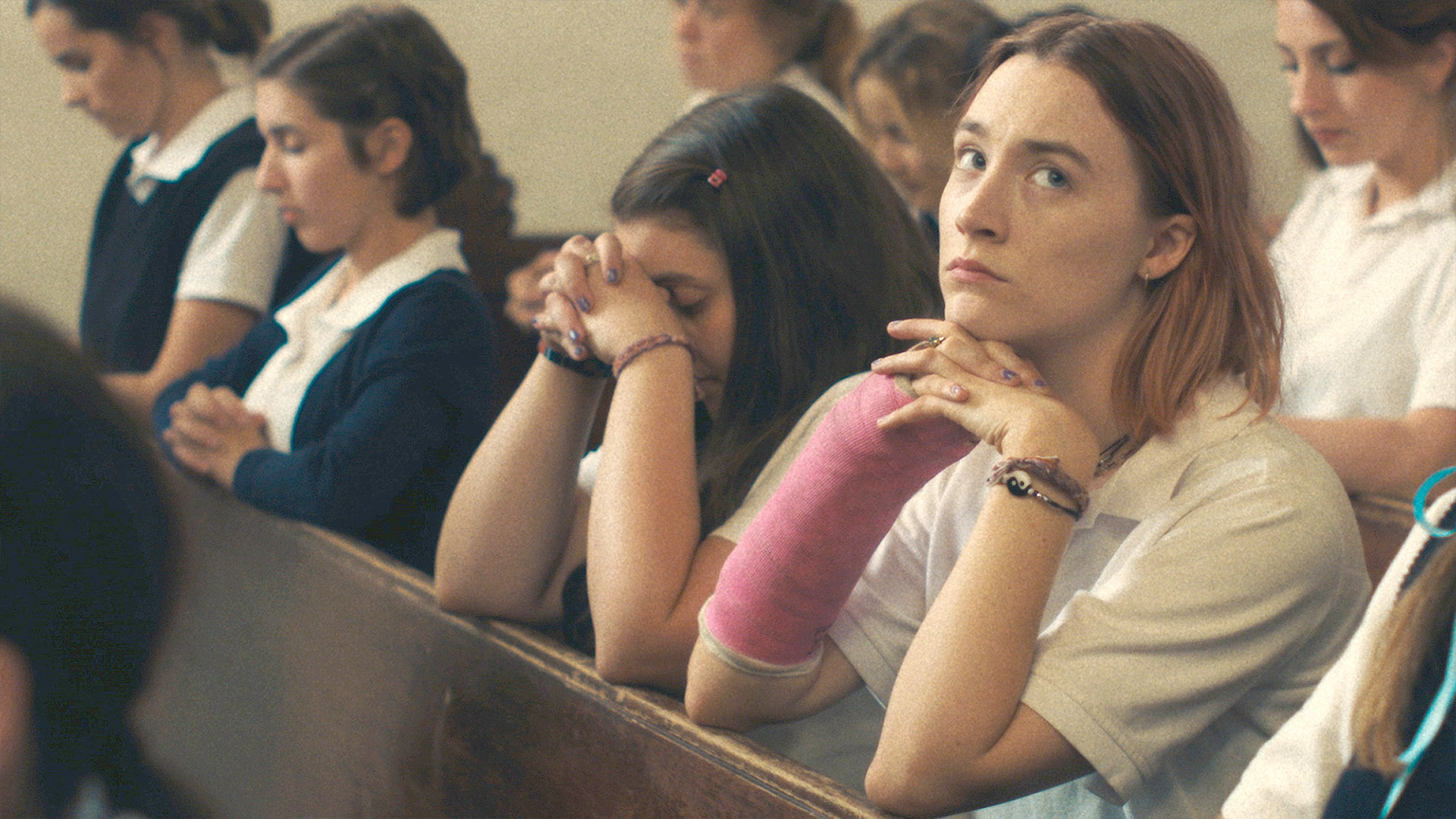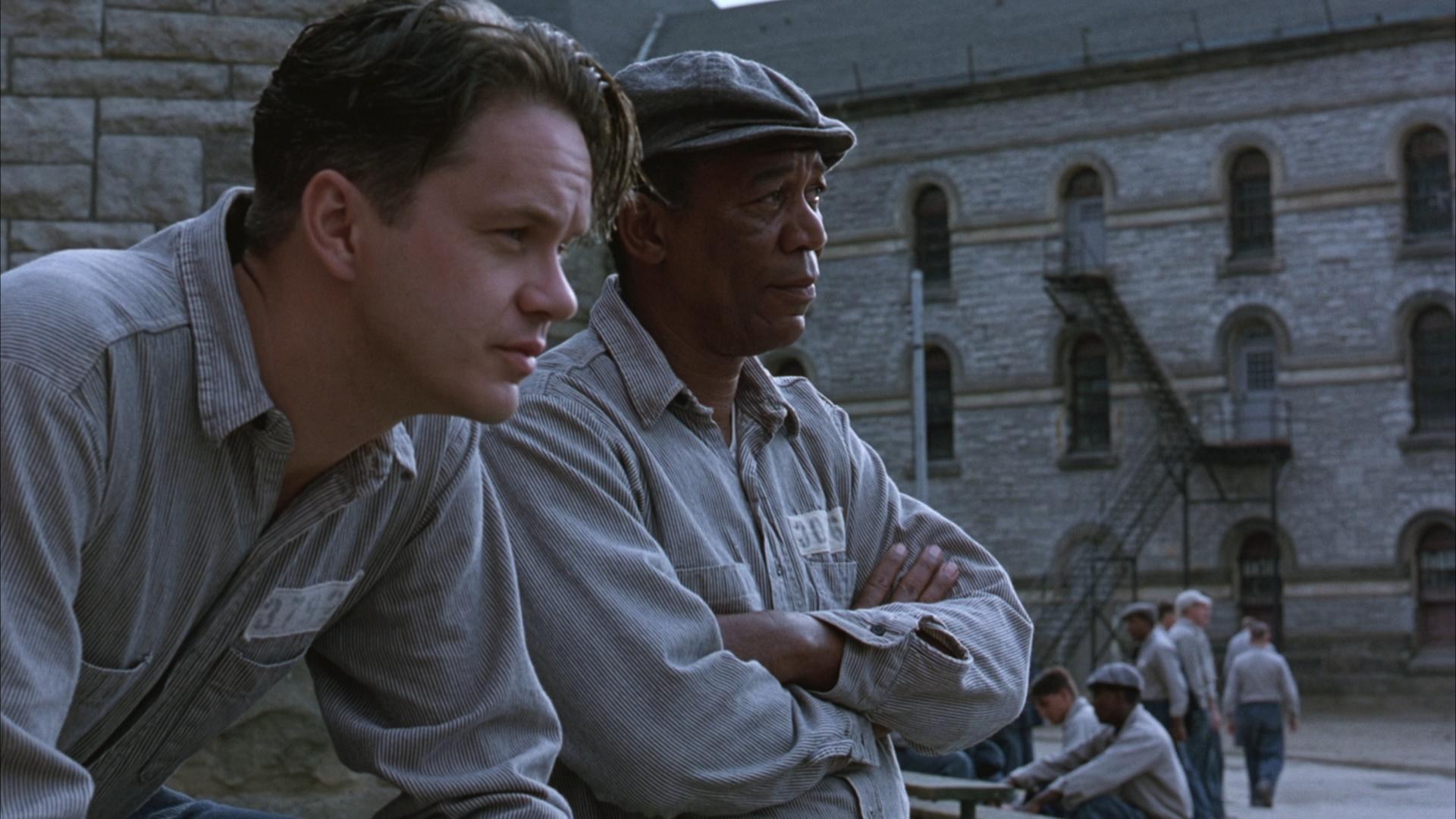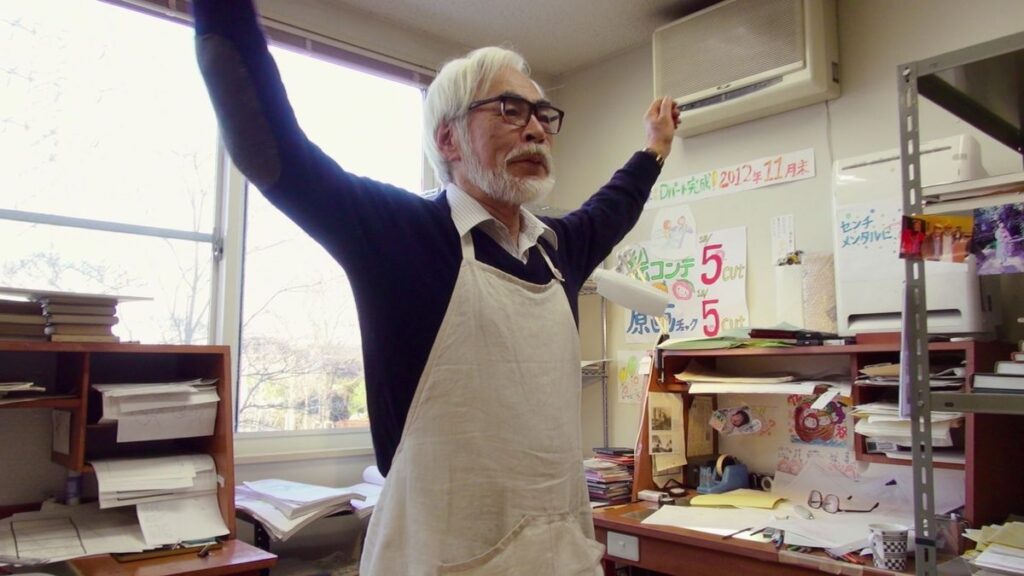Opposition to authority in Peter Weir’s coming-of-age dramedy consists of the kind of life advice that should remain on Hallmark cards.
John Keating is the Platonic ideal of a kind of character seen in late 20th century Hollywood cinema onward that I would tentatively dub the ‘anti-establishment eccentric’, a hollowly intriguing archetype that’s most aggressively repeated in saccharine dramedies like this and whose chief purpose for the audience, in concert with the film they’re at the center of, is to provide a simultaneously inspiring and, in effect, preposterous venture into escapist self-actualization for them when they lack the means to do so in their actual life, mentoring the protagonist(s) about a new and unique worldview they can adopt in order to achieve their seemingly wild dreams when all such hopes have, in all likelihood, been silently whittled away for the viewer, compelling them to stand out through song and dance, art and poetry, or any other technique for defying servility that can still be tolerated and ideally awed at by general audiences in accordance with their tight and well-instilled values (in this case, some of the scenes that illustrate his students ‘breaking convention’ as urged by his unorthodox teaching methods are very inadvertently comical, such as when two, then three, then four of them start running endlessly in circles on and off of the beds of a cramped preparatory school dorm room, laughing way too hard while one plays the tambourine for no reason).
Him, other characters like him, and the non-conformity they advocate for in response to subjugative authority is just histrionic enough to be enticing and just vague enough to be uniformly non-confrontational towards the rigid standards and oppressive impositions they feign opposition to, with the limits of their circumvention of societal expectations ending at merely following a different kind of cutthroat career path, one in the arts instead of the sciences, and if there’s time, perhaps relentlessly seeking out a non-single woman you hardly know for the reason of you ostensibly knowing what’s best for her, to the point of her public embarrassment thanks to you and your sexual assault of her! In this one, she ends up finding such licentious behaviour very cute.
With or without the flagrant incel fantasy or whatever other ill-advised actions and storylines the archetype’s enlightenment incites, their function is inherently deceitful in the romanticized ideological falsehoods they sell with infectious enthusiasm, which almost always go entirely unchallenged except by worse, authoritarian egocentrics whose domineering conservatism (signified by antiquated aesthetics of magisterial poshness and unfluctuating propriety) outpaces their well-intentioned fallaciousness in every capacity, despite how much the two supposedly conflicting perspectives implicitly align. The archetype’s persuasive teachings, constantly affirmed by the film they occupy, take the world of meritocratic reward first delineated by their and their protégés’ stifling oppressor at face value, reaffirming the deliberate misrepresentation of class malleability that is the idea that everyone has the opportunity to succeed and rise above their vulgarity should they pursue such better conditions with enough productive zeal, and encouraging a tyranny of individualism where each and every human being (whether they seek to be an actor by their own election, or to be a doctor by the compulsion of their surroundings) selfishly contends for personal prosperity which, if achieved, is inherently at the expense of everyone else.
What Keating and the rest posit is that this ideal should remain upheld in spite of how it entraps the majority into an inevitably disappointing rat race that wipes away their frame of reference for a societal model founded on compassion, that the furthest that one can deviate from current social norms (while still complying with a hidden, manufactured ‘rationality’) are mostly empty expressions of individuality that don’t go past the parameters of institutional resistance where struggle is arbitrarily deemed offensive; not as though the only example of notable protest that is seen (which is instantly criticized, of course) would ever be meaningful, but regardless of its presence in the narrative, any substantial action taken against oppression is paid no mind whatsoever as the screenplay sharpens its focus on simultaneously blunt and equivocal posturing, indirectly but no less consciously rejecting radical subversiveness as a matter of principle, culminating in everyone who believes the individualistic, dulcet words of the counter-revolutionary revolutionary to literally stand up for his frictionless philosophy in the end—a new breed of conformity. Sucking the marrow out of life doesn’t mean choking on the bone, but neither does it mean to leave some, nay, most of it there because you’re content with only partially treating the unhealthy skeleton.
